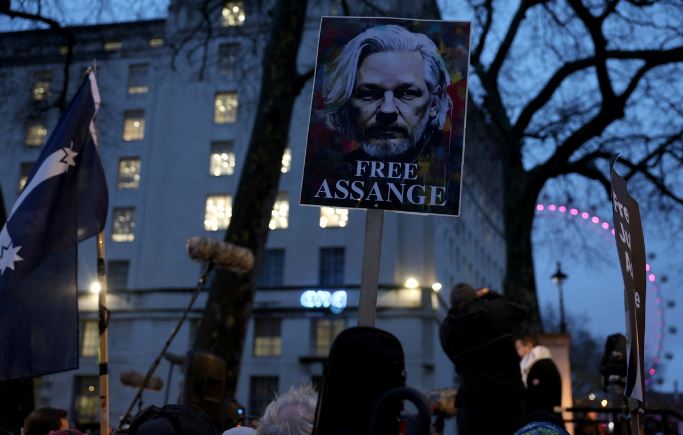Assange has long argued that efforts to extradite him have been “politically motivated”, but the court refused to grant him leave to appeal on those grounds…reports Asian Lite News
WikiLeaks founder Julian Assange has fended off the threat of immediate extradition to the United States after the latest ruling by the High Court in London, which has signalled it may allow him to appeal his case.
Notably, if extradited to the US, the 52-year-old Australian citizen will have to stand on trial on chargesof espionage relating to WikiLeaks’s release of classified documents relating to the US-led wars in Afghanistan and Iraq. The trial could see him spend the rest of his life behind bars.
The court gave the US government three weeks to give a series of assurances around Assange’s First Amendment rights and that he would not face the death penalty. If the US fails to give these assurances, Assange would be allowed to appeal his extradition.
At a two-day hearing last month, Assange sought permission to review the 2022 extradition decision signed off by the UK.
A panel of two judges said in their Tuesday ruling that Assange would not be extradited immediately, giving the US a three-week window to provide assurances that he would enjoy similar legal rights as US citizens.
“If those assurances are not given, then leave to appeal will be given and there will then be an appeal hearing,” the judgement read.
If the assurances are given, there will be a further hearing in May to decide if the assurances are ‘satisfactory’, before a final decision on leave to appeal, it said.
The court said Assange had a “real prospect of success” on three of the nine grounds of appeal: that his extradition is incompatible with freedom of expression; that, if extradited, Assange might be prejudiced at trial due to his nationality; and that, if extradited, he would not enjoy adequate death penalty protection.
Assange has long argued that efforts to extradite him have been “politically motivated”, but the court refused to grant him leave to appeal on those grounds.
“The judge found, on the evidence, that Assange had not shown that the request was made for the purpose of prosecuting him on account of his political opinions,” it said.
It said the judge had taken account of the evidence that the CIA had planned to kidnap Assange from the Ecuadorian Embassy – where he was holed up between 2012-2019 – but the judge “concluded that this was not related to the extradition proceedings.” (ANI)
ALSO READ-‘UK’s approach to China robust’

Leave a Reply